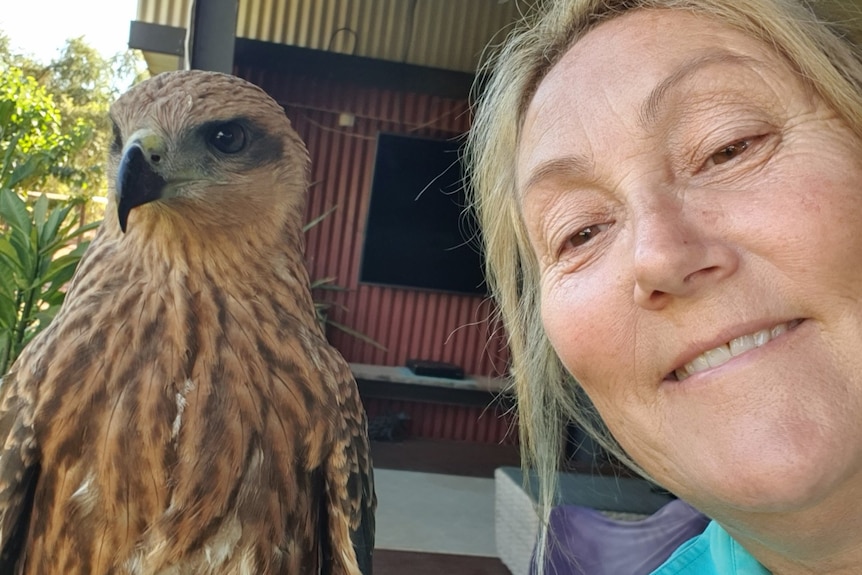Wildlife carers across the Kimberley have been working overtime to help stressed animals suffering from the sweltering wet season conditions in Western Australia’s far north.
Key points:
- Birds are “dropping dead” due to extreme temperatures in WA’s Kimberley
- A wildlife carer has loaded her vehicle with kangaroos to escape the heat
- An ecologist says more help is needed from the community
Heidi Sampey, who has been caring for native wildlife for seven years, said that there had been little relief from the prolonged spells of hot weather.
“It’s just not stopping,” she said.
“You have one hot day and animals can cope with it, but when it’s constant, it just keeps going on and on.”
Ms Sampey said the heat was so intense it had caused birds to fall out of the sky.
“They just drop down dead,” she said.
She said her organisation was caring for two birds suffering from heat exhaustion.
“You do the same thing as you would with a human, get them cooled down, give them hydrates and get those fluids back into them,” Ms Sampey said.
“Hopefully they come good.”
She said she feared other bird deaths were not being reported.
“Unfortunately, with Derby being such an isolated place, a lot of the birds aren’t being found,” Ms Sampey said.
“Unless they have water, they are just going to die. It’s really bad.”
Rescuing kangaroos
Wildlife carer Mandy Watson has been on a mission to relocate dozens of rescued animals suffering from the extreme heat.
She said the group had rescued about 840 kangaroos and spent more than $2,000 this year on feed and supplies.
Ms Watson began a seven-hour drive on Friday, travelling south from Kununurra to Buchanan Creek, in the Purnululu National Park.
The wildlife carer said extreme daily temperatures and warm overnight minimums had made it difficult for the marsupials to cool down.
“They are just licking their arms, that’s how they cool down,” she said.
“They’re all really suffering at the moment.”
Bureau of Meteorology data shows temperatures in the Kimberley peaked at 45.4 degrees Celsius in Fitzroy Crossing on December 2.
Ms Watson said she attempted to relocate animals to cooler places every year.
Calls for help
Wildlife ecologist Gráinne Cleary said recent bushfires and disappearing water resources and vegetation were making it difficult for birds to seek refuge.
“It’s really not good,” she said.
“What’s going to happen is rapid adaptation of these birds to find some way to cope, to find vegetation, to find areas that they can find refuge in, otherwise we will lose them.”
Dr Cleary said she wanted residents to provide water and areas of shade for birds in their gardens.
“It gets around to the other birds that this is a place we can fly to, where they can recuperate and then move on,” she said.
Get our local newsletter, delivered free each Tuesday
